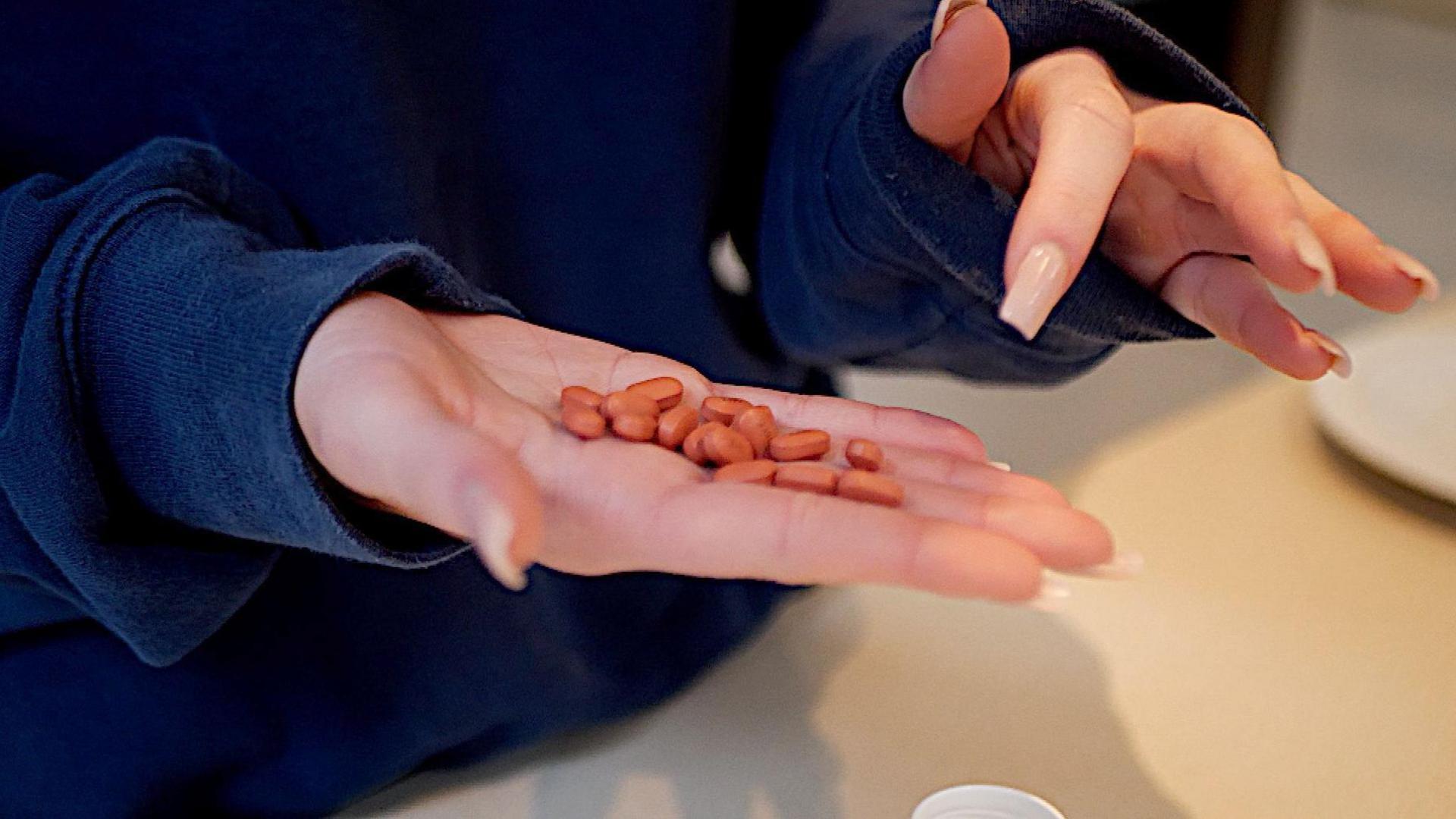Student rations ADHD medication ahead of exams

There has been a shortage of ADHD medication since September
- Published
Students have said they are worried about how the shortage of Attention Deficit Hyperactivity Disorder (ADHD) medication will impact their exams, with some rationing tablets.
Rory, 16, from Sussex, says he has been rationing his medication "to stretch it out" as he fears he will not have enough for the exam season.
Since September, there has been a shortage of ADHD medication due to an increase in demand and manufacturing issues.
A Department of Health and Social Care (DHSC) spokesperson said: "We are working with the respective manufacturers' industry to help resolve remaining issues as soon as possible."
'Really struggling'
ADHD is a neurological condition that can seriously impair focus, retention of knowledge and memory. According to the National Institute for Health and Care Excellence, external, it is believed about 5% of children have the condition.
Medication can help manage symptoms of ADHD, which include difficulty focusing on a single task like revision.
Rory says the medication has made a huge difference.
He said: "Before I was diagnosed and medicated, it really did put me behind and I was really struggling.
"I was quite angry and frustrated because I was just never doing well and always being told off and I just didn't know why because I was trying my best."
However, ADHD medications are often controlled drugs, which means only a maximum of one month supply can be prescribed at a time, with many pharmacies unable to fulfil even that amount.
This, coupled with the shortage, has led to Rory and his parents deciding to ration his medication, even skipping some on weekends, so he has enough ahead of exam season.

Rory said he was struggling before being diagnosed and medicated
The NHS has differing advice, external about stopping ADHD medication, depending on the drug being used. For users of guanfacine it is advised not to stop suddenly, however, it is “usually safe” to stop medications such as methylphenidate, lisdexamfetamine and atomoxetine without needing to reduce the dose first.
It is advised in all cases to seek medical advice first before stopping or reducing medication.
Rory said: "At the moment, to stretch it out, I'm just taking half dosages so that I can last longer."
His mum, Leigh, said: "Every day we ask, do you need it today? Have you got a lesson that you can manage without?"
Students fear running out of ADHD medication
Rory was not the only student concerned about the medication shortage.
Alice, 16, from Surrey, said she was "terrified" about not having enough medication to see her through exam season.
"I genuinely don't know how I would be able to get through my GCSEs," she said.
Alice said "every second" of revision counts, adding: "I don’t want to be wasting revision days doing nothing because I can’t concentrate because I have no medication."
Henry Shelford, chairman of charity ADHD UK, said "huge swathes of revision time" had already been lost due to the shortage of medication.

Alice said she was "terrified" about not having enough medication to see her through exam season
"We've spoken to teachers who don't know what to do about children struggling without medication," Mr Shelford added.
A spokesperson for DHSC said it had taken "swift actions" to improve the supply of ADHD medication and "some issues" had been resolved.
"We know that shortages can be distressing for patients and families and we advise any patient who is worried about their condition to speak to their clinician," the DHSC spokesperson added.
If you've been affected by issues raised in this story, there is information and support available on BBC Action Line.
ADHD medication system needs overhaul - author
- Published22 February 2024
ADHD medicine shortage devastating families - MP
- Published24 January 2024
'No end to the stress' of ADHD medication shortage
- Published15 April 2024
ADHD medication shortage leads to job fears
- Published11 March 2024
Related internet links
Follow BBC Surrey on Facebook, external, and on X, external. Send your story ideas to southeasttoday@bbc.co.uk, external or WhatsApp us on 08081 002250.